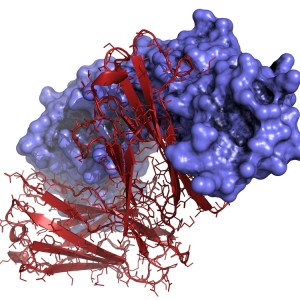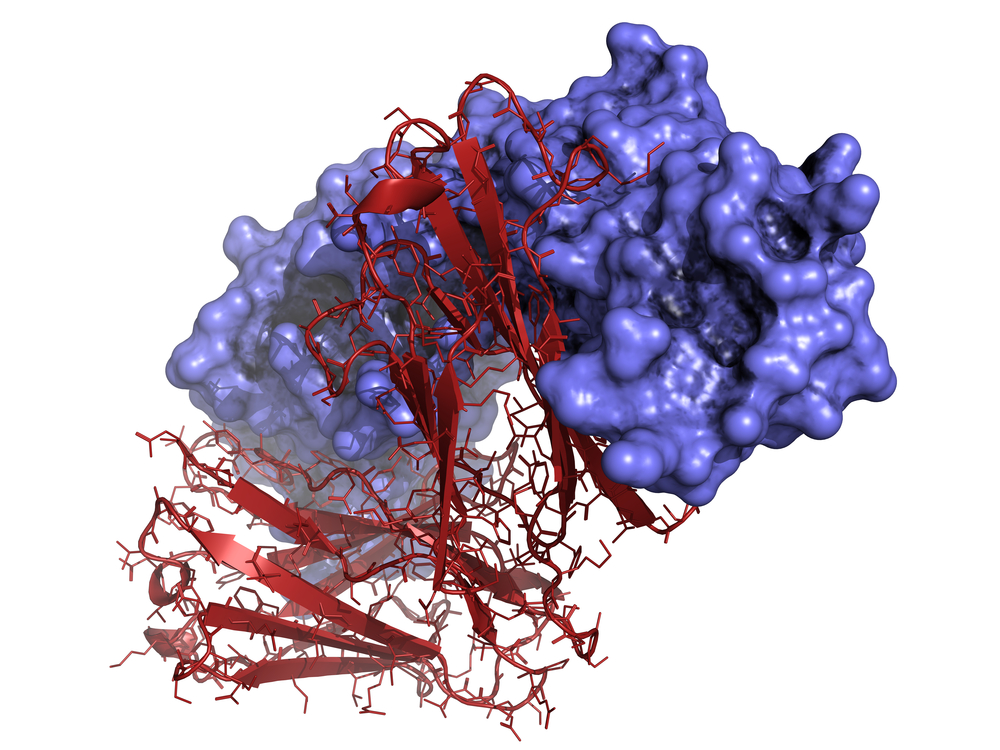 A novel class of synthetic molecules with the targeting and effector functions of antibodies were synthesized to induce a highly targeted immune response against prostate cancer. The study entitled “Chemically Synthesized Molecules with the Targeting and Effector Functions of Antibodies” was published in the Journal of the American Chemical Society by Patrick J. McEnaney part of Dr. David A. Spiegel’s group, and colleagues.
A novel class of synthetic molecules with the targeting and effector functions of antibodies were synthesized to induce a highly targeted immune response against prostate cancer. The study entitled “Chemically Synthesized Molecules with the Targeting and Effector Functions of Antibodies” was published in the Journal of the American Chemical Society by Patrick J. McEnaney part of Dr. David A. Spiegel’s group, and colleagues.
The team engineered a class of new molecules, called synthetic antibody mimics (SyAMs) that bind simultaneously to unhealthy cells and cells from the immune system. This interaction leads to a very specific targeted immune response like the one seen with natural human antibodies.
In this study the main focus was the use of SyAM molecules to target prostate cancer, termed SyAM-Ps, which recognize tumor cells by binding to a specific protein, the prostate-specific membrane antigen (PSMA), on the surface of the transformed cells, and to the Fc gamma receptor on the surface of the immune cell. This binding elicits a high selective cancer cell phagocytosis and consequently, the death of the malignant cell.
“Unlike antibodies, however, our molecules are synthetic organic compounds that are approximately one-twentieth the size of antibodies,” said David A. Spiegel, a professor of chemistry at Yale in a press release.
“They are unlikely to cause unwanted immune reactions due to their structure, are thermally stable, and have the potential to be administered orally, just like traditional, small-molecule drugs.” he added.
Dr. Spiegel said that the process of synthesis and optimization of the synthetic antibody structure took substantial time and effort. Dr. Spiegel also added that the synthetic molecules with an intermediate size seem to be the best in targeting cancer cells and stimulating the immune cells. “It’s also noteworthy that molecules of such a small size can bring together two objects as enormous as cells, and trigger a specific functional response, entirely as a result of specific receptor interactions,” added Dr. Spiegel.
Based on the study’s results, the team concluded that SyAMs have the advantage of being small biological molecules that overcome the negative effects associated with the standard treatments for cancer and other diseases, like HIV and various bacterial diseases.

